🔭🌌
🔭🌌

The clearest image of Mars ever taken!
via reddit
More Posts from Monstrous-mind and Others

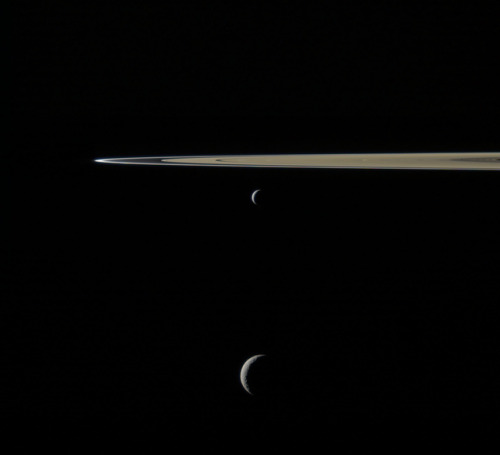
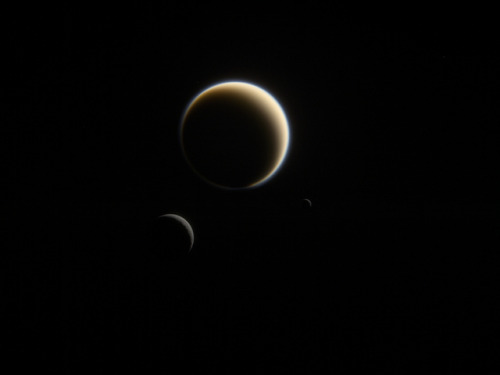
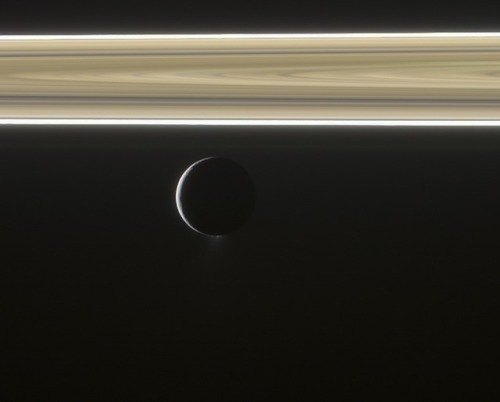
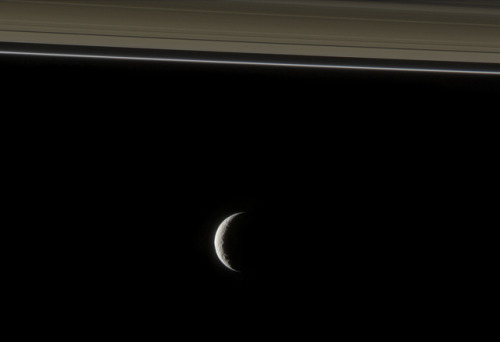
Saturn Rings and Moons: From left, the moons are Janus, Pandora, Enceladus, Mimas and Rhea. Following the images below, Enceladus and Tethys, Titan, Rhea and Mimas. Enceladus and Tethys.
by Gordan Ugarkovic
🔭🌌🪐

Saturn - March 11 2006
Image Credit: NASA/JPL-Caltech/CCI/CICLOPS/Kevin M. Gill
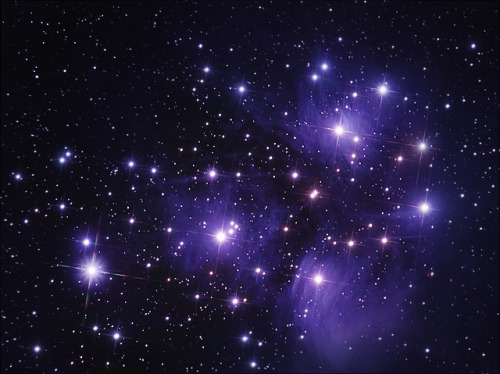
Pleiades by Chuck Manges


🔭🌃🌌🪐🍁🍂⛄
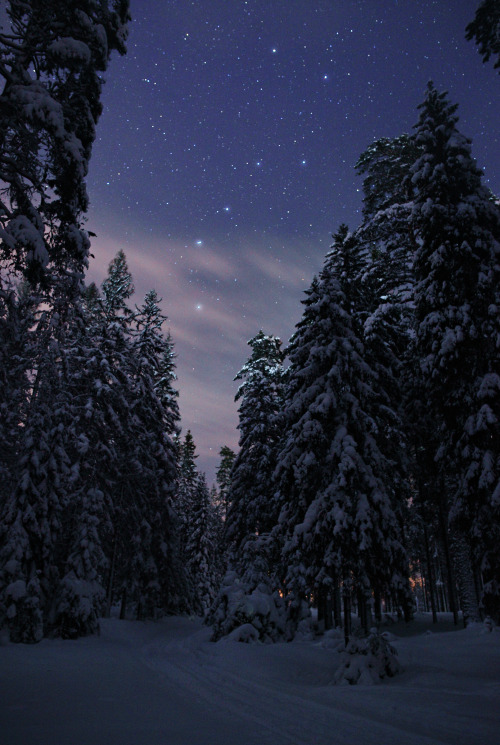
Under the big dipper
by: Mikhail Reva





Autumn Kitty by Афиногенова Татьяна
🐈🔭🌃🌌
Black holes
A black hole is a region of spacetime exhibiting such strong gravitational effects that nothing—not even particles and electromagnetic radiation such as light—can escape from inside it. The theory of general relativity predicts that a sufficiently compact mass can deform spacetime to form a black hole. The boundary of the region from which no escape is possible is called the event horizon. Although the event horizon has an enormous effect on the fate and circumstances of an object crossing it, no locally detectable features appear to be observed. In many ways a black hole acts like an ideal black body, as it reflects no light.

The idea of a body so massive that even light could not escape was briefly proposed by astronomical pioneer and English clergyman John Michell in a letter published in November 1784. Michell’s simplistic calculations assumed that such a body might have the same density as the Sun, and concluded that such a body would form when a star’s diameter exceeds the Sun’s by a factor of 500, and the surface escape velocity exceeds the usual speed of light.

At the center of a black hole, as described by general relativity, lies a gravitational singularity, a region where the spacetime curvature becomes infinite. For a non-rotating black hole, this region takes the shape of a single point and for a rotating black hole, it is smeared out to form a ring singularity that lies in the plane of rotation. In both cases, the singular region has zero volume. It can also be shown that the singular region contains all the mass of the black hole solution. The singular region can thus be thought of as having infinite density.

How Do Black Holes Form?
Scientists think the smallest black holes formed when the universe began.
Stellar black holes are made when the center of a very big star falls in upon itself, or collapses. When this happens, it causes a supernova. A supernova is an exploding star that blasts part of the star into space.

Scientists think supermassive black holes were made at the same time as the galaxy they are in.
Supermassive black holes, which can have a mass equivalent to billions of suns, likely exist in the centers of most galaxies, including our own galaxy, the Milky Way. We don’t know exactly how supermassive black holes form, but it’s likely that they’re a byproduct of galaxy formation. Because of their location in the centers of galaxies, close to many tightly packed stars and gas clouds, supermassive black holes continue to grow on a steady diet of matter.

If Black Holes Are “Black,” How Do Scientists Know They Are There?
A black hole can not be seen because strong gravity pulls all of the light into the middle of the black hole. But scientists can see how the strong gravity affects the stars and gas around the black hole.
Scientists can study stars to find out if they are flying around, or orbiting, a black hole.

When a black hole and a star are close together, high-energy light is made. This kind of light can not be seen with human eyes. Scientists use satellites and telescopes in space to see the high-energy light.

On 11 February 2016, the LIGO collaboration announced the first observation of gravitational waves; because these waves were generated from a black hole merger it was the first ever direct detection of a binary black hole merger. On 15 June 2016, a second detection of a gravitational wave event from colliding black holes was announced.

Simulation of gravitational lensing by a black hole, which distorts the image of a galaxy in the background
Animated simulation of gravitational lensing caused by a black hole going past a background galaxy. A secondary image of the galaxy can be seen within the black hole Einstein ring on the opposite direction of that of the galaxy. The secondary image grows (remaining within the Einstein ring) as the primary image approaches the black hole. The surface brightness of the two images remains constant, but their angular size varies, hence producing an amplification of the galaxy luminosity as seen from a distant observer. The maximum amplification occurs when the background galaxy (or in the present case a bright part of it) is exactly behind the black hole.
Could a Black Hole Destroy Earth?
Black holes do not go around in space eating stars, moons and planets. Earth will not fall into a black hole because no black hole is close enough to the solar system for Earth to do that.

Even if a black hole the same mass as the sun were to take the place of the sun, Earth still would not fall in. The black hole would have the same gravity as the sun. Earth and the other planets would orbit the black hole as they orbit the sun now.
The sun will never turn into a black hole. The sun is not a big enough star to make a black hole.
More posts about black holes
Source 1, 2 & 3
🔭🌃🌌
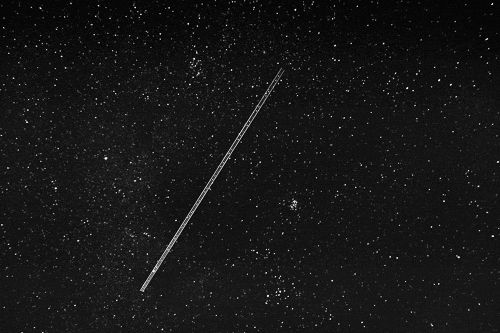
🍁🍂🎃🍂🍁🌬🌨






Autumn dressed up in gold, is the richest season of the soul.
-
 crazyrandompinklady reblogged this · 2 years ago
crazyrandompinklady reblogged this · 2 years ago -
 crazyrandompinklady liked this · 2 years ago
crazyrandompinklady liked this · 2 years ago -
 komikbookgeek reblogged this · 2 years ago
komikbookgeek reblogged this · 2 years ago -
 xoxosteven reblogged this · 2 years ago
xoxosteven reblogged this · 2 years ago -
 neist reblogged this · 2 years ago
neist reblogged this · 2 years ago -
 neist liked this · 2 years ago
neist liked this · 2 years ago -
 therodentqueen liked this · 2 years ago
therodentqueen liked this · 2 years ago -
 purpledragonfollower liked this · 2 years ago
purpledragonfollower liked this · 2 years ago -
 rhulyon reblogged this · 2 years ago
rhulyon reblogged this · 2 years ago -
 drawmotivation liked this · 2 years ago
drawmotivation liked this · 2 years ago -
 bowlingbum liked this · 2 years ago
bowlingbum liked this · 2 years ago -
 lavilladeste liked this · 2 years ago
lavilladeste liked this · 2 years ago -
 xoxosteven liked this · 2 years ago
xoxosteven liked this · 2 years ago -
 tucriah liked this · 2 years ago
tucriah liked this · 2 years ago -
 panspanther reblogged this · 2 years ago
panspanther reblogged this · 2 years ago -
 panspanther liked this · 2 years ago
panspanther liked this · 2 years ago -
 belgianfry liked this · 2 years ago
belgianfry liked this · 2 years ago -
 fabledshadow reblogged this · 2 years ago
fabledshadow reblogged this · 2 years ago -
 d123456789d123 reblogged this · 2 years ago
d123456789d123 reblogged this · 2 years ago -
 justnotfamousyet liked this · 2 years ago
justnotfamousyet liked this · 2 years ago -
 knarsisus reblogged this · 2 years ago
knarsisus reblogged this · 2 years ago -
 bey0nd-a-dream reblogged this · 2 years ago
bey0nd-a-dream reblogged this · 2 years ago -
 the-cozy-snowflake reblogged this · 2 years ago
the-cozy-snowflake reblogged this · 2 years ago -
 kellyjeanbean reblogged this · 2 years ago
kellyjeanbean reblogged this · 2 years ago -
 kellyjeanbean liked this · 2 years ago
kellyjeanbean liked this · 2 years ago -
 videospectre7 reblogged this · 2 years ago
videospectre7 reblogged this · 2 years ago -
 videospectre7 liked this · 2 years ago
videospectre7 liked this · 2 years ago -
 collariel reblogged this · 2 years ago
collariel reblogged this · 2 years ago -
 collariel liked this · 2 years ago
collariel liked this · 2 years ago -
 collectivesighs reblogged this · 2 years ago
collectivesighs reblogged this · 2 years ago -
 collectivesighs liked this · 2 years ago
collectivesighs liked this · 2 years ago -
 do-a-phlip reblogged this · 2 years ago
do-a-phlip reblogged this · 2 years ago -
 do-a-phlip liked this · 2 years ago
do-a-phlip liked this · 2 years ago -
 freekentuckythinker reblogged this · 2 years ago
freekentuckythinker reblogged this · 2 years ago -
 gym-jordan-wrestling-club liked this · 2 years ago
gym-jordan-wrestling-club liked this · 2 years ago -
 freekentuckythinker liked this · 2 years ago
freekentuckythinker liked this · 2 years ago -
 shtrbger liked this · 2 years ago
shtrbger liked this · 2 years ago -
 hashtagredlipstick13 reblogged this · 2 years ago
hashtagredlipstick13 reblogged this · 2 years ago -
 hashtagredlipstick13 liked this · 2 years ago
hashtagredlipstick13 liked this · 2 years ago -
 blocodeespantamentos liked this · 2 years ago
blocodeespantamentos liked this · 2 years ago -
 whatareyoureallyafraidof reblogged this · 2 years ago
whatareyoureallyafraidof reblogged this · 2 years ago -
 erikag59 liked this · 3 years ago
erikag59 liked this · 3 years ago -
 danem111 reblogged this · 3 years ago
danem111 reblogged this · 3 years ago -
 danem111 liked this · 3 years ago
danem111 liked this · 3 years ago -
 nownky liked this · 3 years ago
nownky liked this · 3 years ago
My ambition is handicapped by laziness. -C. Bukowski Me gustan las personas desesperadas con mentes rotas y destinos rotos. Están llenos de sorpresas y explosiones. -C. Bukowski. I love cats. Born in the early 80's, raised in the 90's. I like Nature, Autumn, books, landscapes, cold days, cloudy Windy days, space, Science, Paleontology, Biology, Astronomy, History, Social Sciences, Drawing, spending the night watching at the stars, Rick & Morty. I'm a lazy ass.
222 posts